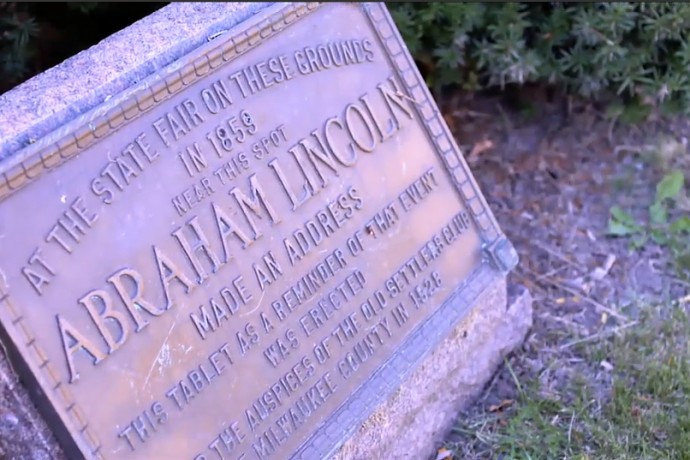This week’s Republican presidential debate began with a visual homage to Abraham Lincoln and Theodore Roosevelt. It continued with unanimous candidate endorsement of small government and deregulation–now a party creed—without anyone noticing that Lincoln and Roosevelt were aggressive expanders of the federal government’s reach.
I’m not picking policy or party here. But it seems today’s disciples are not furthering the Lincoln-Roosevelt gospel.
With federal tax dollars, Lincoln expanded western settlement, subsidized agricultural colleges, and sponsored the country’s first trans-continental railroad, the cutting-edge infrastructure of the day. He imposed tariffs and established the federal income tax. He set up a national currency, the Department of Agriculture, a system of national banks, and reviewed the execution warrants for Indians convicted of killing Americans (approving only 38 of 303). And he fought a civil war on the idea that federal government—not states or localities—determined if new states to the union were slave or free.
Holding that it is the job of federal government to give the ordinary guy a “square deal,” T.R, as he was called, broke up the monopolies, including the railroads and Standard Oil. He used federal power to bring forty anti-trust suits and established federal controls over food, drugs, and rail rates. He set up the US Forest Service and brought 230,000,000 acres of land under federal protection from corporate development. He intervened in the 1902 coal miners’ strikes, earning the workers higher pay and a shorter work week. He supported an inheritance tax that would increase with the size of the estate. And set out to use federal power to reform the rules for football.
All told, the Lincoln-T.R. legacy is an inheritance tax and a progressive—not flat—income tax for government to use in infrastructure, education, and environmental protection and to get a fair shake for workers, protect consumers, and regulate the economy, especially enterprises “too big to fail.”
Their heirs this year oppose an inheritance tax, will lower income and corporate taxes, and will not raise the minimum wage because, as Carly Fiorina said, government taxation and regulation crush growth. Her tax code is three pages long. In some contrast, T.R. thought government promotes growth by, among other things, regulating business. Cruz proposes a flat tax 10% so, he said, a millionaire doesn’t pay less than his secretary. Yet Lincoln found that his initial flat tax burdened the lower and middle classes far more than the rich, and he made it progressive.
Cruz said his flat tax idea is inspired by Reagan, who, Cruz said, lowered taxes and saw substantial economic growth. Except that, after a much-publicized tax cut in 1981 (lowering the top bracket from 70% to 50%, still far higher than today), Reagan signed a tax hike every year until 1987, yielding tax revenues at 18.2% of GDP over his two terms, compared to 18.1% all other presidencies between 1970 and 2010. A wash. Reagan raised taxes to fund government programs like Social Security and the Tax Equity and Fiscal Responsibility Act, the “largest peacetime tax increase in American history”—from the supposed great tax cutter. Reagan’s second big Tax Reform Act (1986) lowered the top rate but raised capital gains taxes on high earners. To help out the poor and lower middle classes, it expanded the personal exemption, standard deduction, and earned income tax credit, relieving six million poor of a tax burden.
Also on Cruz’s docket is the elimination of the departments of Energy, Housing and Urban Development, Commerce, Education, and the IRS. But when those areas were unregulated, T.R. found rampant corporate corruption, price fixing, cartels, slums, and poisons in the nation’s food.
Jeb Bush wants to repeal all Obama regulation. Going a step further, Fiorina said she’ll review all regulation whatever its origin because government is not accountable. But the Republicanism of Lincoln and T.R. holds that government is most accountable because of that new-fangled idea of election by the citizens, who subject government to review. The private sector, T.R. found, is not accountable to anything other than profits, which is why elected government needs to review it.
In 1954, Dwight D. Eisenhower wrote to his brother Edgar,
Should any political party attempt to abolish social security, unemployment insurance and eliminate labor laws and farm programs, you would not hear of that party again in our political history. There is a tiny splinter group, of course, that believes you can do these things… Their number is negligible and they are stupid.
This sounds more in line with Lincoln and T.R. But who in his own party would he vote for this year?


